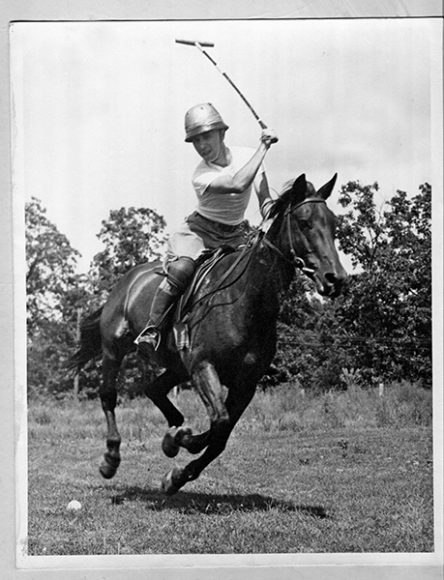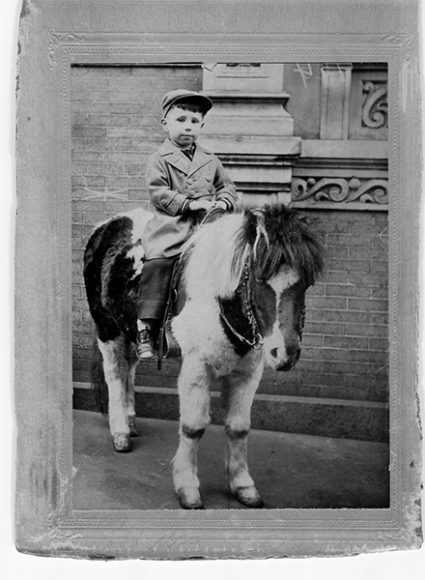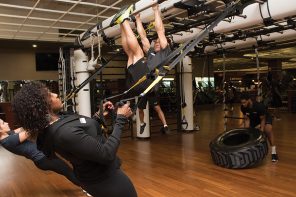The tale of how Stella, a very smart pony, taught me how to play polo is chronicled in the annals of the polo teams at the University of Missouri.
The story provides insights into the sport for beginners but frankly, for most people, just laughter.
When I entered the university in 1939, I was required to enroll in the ROTC (Reserve Officers Training Corps) unit, which at the time was still using horse-drawn field artillery. In the stables, on the first day of training, I was ordered to mount a horse — something I had never done before. When I tried to comply, I was flung off. I had attempted to mount from the wrong side. This spectacle of a New Yorker being thrown from a bewildered steed provoked great guffaws from the other students standing by. Most of them were farm-bred youths.
After that humiliation and determined to demonstrate my powers to the farm boys, I became obsessed with horses. I began to spend more time in the stables and riding alone in the stockades than at books in the classrooms. When I tried to imitate the members of the university polo team at their workouts, I toppled off twice. This drew the sympathetic attention of the polo coach, Lt. Leslie Green. I approached him hoping to get the use of one of the team’s polo ponies. Supplied with government-owned horses for the ROTC, Missouri was able to use the best of them for polo, the rich man’s sport. Polo was then being played only at wealthy schools, like Princeton University, whose players could afford the expensive professional polo ponies.
With a grin and a wrinkled brow, the Missouri coach handed me an old mallet and invited me to join the training exercises of his polo squad. He graciously gave me the use of his sturdy mare, Stella. In my first weeks with Stella, she would snort when I entered her stall. At first I didn’t know if it was from affection or contempt. Stella found me more acceptable after I learned about the lure of fresh apples.
In play on the polo field, I did little more than head Stella in the general direction of the ball and then let my reins go slack. Stella would freely race down the field after the white polo ball, positioning me in perfect time to swing my mallet. When I hit a back shot, Stella would swiftly turn without my spur and race back up the field after the ball.
In my junior year, before going off to the Pacific Theater to serve as an infantry officer in World War II, I graduated from the squad to the polo team and played in matches against Oklahoma and other universities in indoor arenas and on grass. Though I played quite well, I confess I might have been paraded by the coach for the spectators more for show than for my skills. Green never ceased pointing me out as the city-bred kid who not long ago did not know on which side to mount a horse, labeling me “the New York boy who came to Missouri and learned to ride a horse.”
He would often add, that under his guidance and, yes, very much with Stella’s help, I had learned the game passably well.





